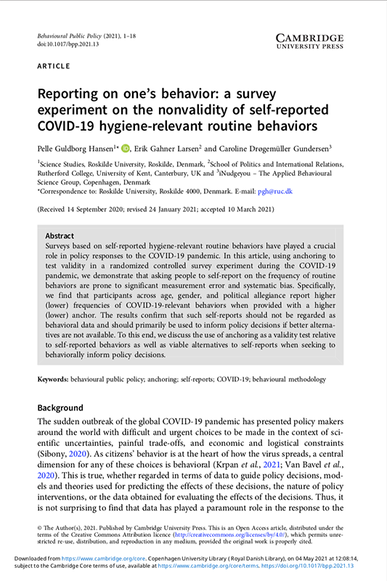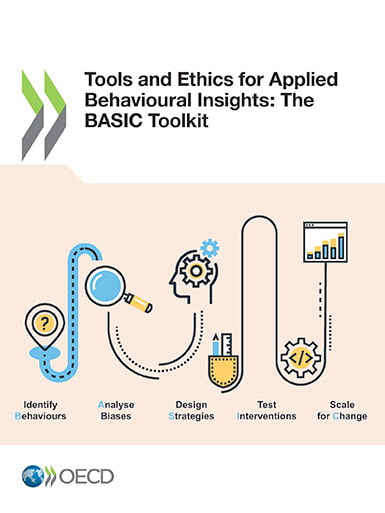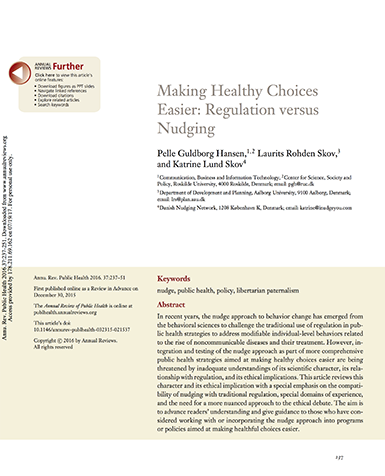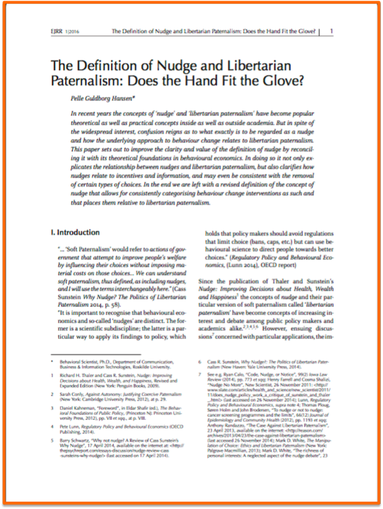UDVALGTE FORSKNINGSARTIKLER |
|
Reporting on one's behavior:
a survey experiment on the nonvalidity of self-reported COVID-19 hygiene-relevant routine behaviors Pelle Guldborg Hansen & Erik Gahner Larsen & Caroline Gundersen Surveys based on self-reported hygiene-relevant routine behaviors have played a crucial role in policy responses to the COVID-19 pandemic. In this article, using anchoring to test validity in a randomized controlled survey experiment during the COVID-19 pandemic, we demonstrate that asking people to self-report on the frequency of routine behaviors are prone to significant measurement error and systematic bias. Specifically, we find that participants across age, gender, and political allegiance report higher (lower) frequencies of COVID-19-relevant behaviors when provided with a higher (lower) anchor. The results confirm that such self-reports should not be regarded as behavioral data and should primarily be used to inform policy decisions if better alternatives are not available. To this end, we discuss the use of anchoring as a validity test relative to self-reported behaviors as well as viable alternatives to self-reports when seeking to behaviorally inform policy decisions.
|
Tools and Ethics for Applied Behavioural Insights: The BASIC Toolkit
|
Making Healthy Choices Easier: Regulation versus Nudging
|
The Definition of Nudge and Libertarian Paternalism: Does the Hand Fit the Glove?
|
Nudge and the Manipulation of Choice: A Framework for the Responsible Use of the Nudge Approach to Behaviour Change in Public Policy
|




